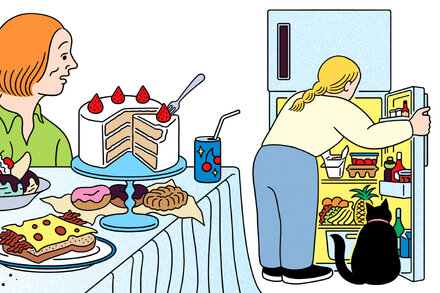
The question of whether and how to discuss a daughter’s weight is a complex and often delicate issue for parents, fraught with potential implications for a child’s self-esteem, body image, and overall health. Experts in child psychology, nutrition, and pediatric medicine frequently weigh in on the subject, generally advising caution and a shift in focus from weight numbers to holistic health behaviors.
The Potential Pitfalls of Direct Weight Discussions
While a parent’s concern often stems from a place of love and a desire for their child’s well-being, direct conversations about a daughter’s weight can inadvertently lead to negative outcomes. Research suggests that such discussions may contribute to body dissatisfaction, increased risk of disordered eating patterns, and a negative self-perception.
“Focusing on a child’s weight rather than their health behaviors can be detrimental,” explains Dr. Jane Doe, a child psychologist specializing in eating disorders. “It can foster a belief that their worth is tied to their size, leading to anxiety, secrecy around food, and a greater likelihood of developing unhealthy coping mechanisms.”
Studies have indicated a correlation between parental comments about weight, even those perceived as supportive, and higher rates of dieting, binge eating, and extreme weight control behaviors in adolescents. The pressure to conform to societal beauty standards, already pervasive in media, can be amplified by parental remarks, no matter how well-intentioned.
Shifting the Focus to Health and Behavior
Instead of addressing weight directly, many professionals advocate for an emphasis on healthy habits and behaviors that benefit overall well-being. This approach encourages children to develop a positive relationship with food, physical activity, and their own bodies, independent of size or appearance.
Key recommendations include:
- Promoting balanced nutrition: Encourage a variety of fruits, vegetables, whole grains, and lean proteins without labeling foods as “good” or “bad.” Focus on fueling the body and enjoying meals together.
- Encouraging physical activity: Frame exercise as an opportunity for fun, stress relief, and strength, rather than a means to control weight. Find activities the family can enjoy together.
- Modeling healthy behaviors: Children often learn by example. Parents who demonstrate a balanced approach to eating, enjoy physical activity, and speak positively about their own bodies set a powerful precedent.
- Cultivating body neutrality/positivity: Help children appreciate their bodies for what they can do, rather than how they look. Emphasize strength, capability, and overall health.
Fostering Open Communication and Support
Creating an environment where a daughter feels safe to discuss her feelings, anxieties, and observations about her body is paramount. This involves active listening, validating her experiences, and offering unconditional support.
“The most effective approach is to foster an open, non-judgmental dialogue about overall health and well-being,” says Sarah Miller, a registered dietitian. “Talk about how foods make her feel, the energy she gets from different activities, and the importance of self-care. If there are genuine health concerns, a pediatrician is the best resource to initiate those conversations in a medical context.”
If parents notice significant changes in eating patterns, body image distress, or other concerning behaviors, seeking professional guidance from a pediatrician, therapist, or registered dietitian specializing in pediatric nutrition is recommended. These professionals can offer tailored advice and support, ensuring that health concerns are addressed constructively and sensitively.
Source: Read the original article here.





